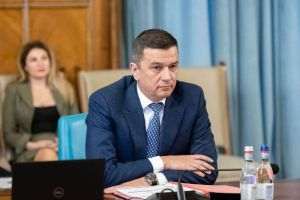The member states of the United Nations (UN) pledged at the end of last week to create a better future for humanity faced with the multiple challenges of wars, poverty and climate change, by adopting the so-called "Pact of the Future". This document, although supported by most states, ran into opposition from several countries, including Russia, which contested some of its provisions. UN Secretary-General Antonio Guterres launched the "Future Summit" initiative as early as 2021, seeing in this pact a unique opportunity to redirect the course of world history. Guterres emphasized the importance of moving from words to deeds in this context: "We have opened the door, but now it is up to all of us to walk through it. It's not just about understanding, it's about action. Today I challenge you to act," he declared at the summit.
However, ahead of the event, Guterres expressed some frustration with the document's ambitions, criticizing the limited capacity of "outdated" international institutions to respond to today's challenges.
• Russia's opposition
Despite the fact that the document was adopted, Russia, supported by Belarus, Iran, North Korea, Nicaragua and Syria, made its opposition clear, calling for the addition of provisions emphasizing that the UN cannot intervene in the internal affairs of states. The request was rejected, and the Russian deputy foreign minister, Sergey Vershinin, said that "no one is satisfied with this text." This position was immediately contested by other leaders. German Chancellor Olaf Scholz described the Pact as a "compass" for the future and criticized Russia's opposition as "obnoxious" and contrary to the direction the rest of the world has taken.
The Future Pact, spread over more than 20 pages, includes 56 concrete actions covering diverse fields, from multilateralism and the reform of international financial institutions, to combating climate change and the development of artificial intelligence (AI). Although the pact contains "good ideas", many observers believe it is not the revolutionary document that Guterres wanted. Richard Gowan of the International Crisis Group told AFP the document "does not completely reform multilateralism", and some diplomats characterized the document as "lukewarm" or "disappointing".
• Future challenges
The negotiations were intense until the last moment, and one of the most sensitive points of discussion was the fight against climate change. Although the reference to the transition to non-fossil energy was initially excluded from the draft, this provision has been reintroduced, which is a positive signal, according to Greenpeace director Mads Christensen. Another sensitive point was the claim of developing countries regarding the reform of international financial institutions. These states have called for easier access to preferential financing to deal with climate impacts. Barbados Prime Minister Mia Mottley has criticized current world governance, calling it "disgusting" for perpetuating the idea of "first class and second class" citizens. Although the compact and its annexes, including the "Global Digital Compact" and the "Declaration for Future Generations", are non-legally binding documents, they raise the issue of implementation. An example is the principle of the protection of civilians in conflicts, an objective often violated, which calls into question the effectiveness of these promises at the global level. The adoption of the Future Pact represents an important step in strengthening international cooperation, but it remains to be seen whether this commitment will be followed by concrete actions that will bring about the changes expected by the global community.











































